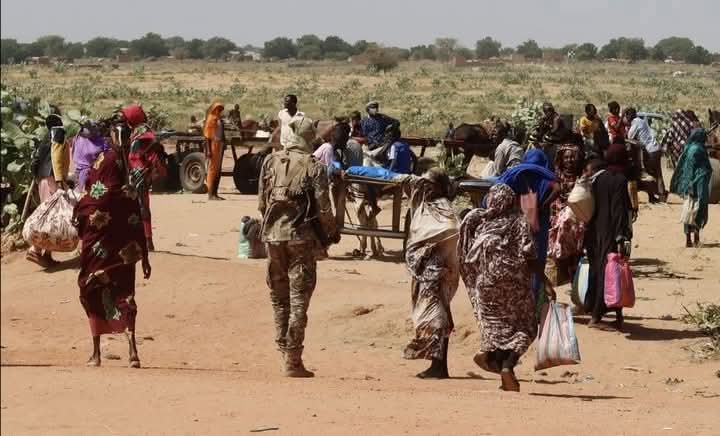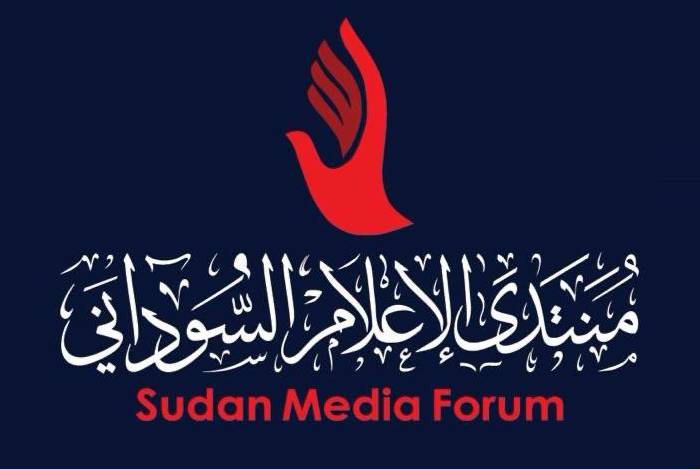
(Dibeibat): Violations, Mass Displacement, and Ongoing Suffering
Sudan Media Forum
Dibeibat, June 16, 2025, Mashaweer Platform, by Siddiq Al-Dukhri
Since May 2023, the city of Dibeibat in South Kordofan State has become a battlefield between the Sudanese Armed Forces (SAF) and the Rapid Support Forces (RSF). Since then, the region has endured relentless bloodshed accompanied by a wave of violations, looting, forced displacement, abductions, and sexual violence.
The area has witnessed some of the darkest days in its history, and the city and its surrounding villages are now nearly emptied of residents.
Dibeibat lies at a strategic crossroads bordering three Sudanese states - North Kordofan, South Kordofan, and West Darfur - and is home to approximately 1.5 million people.
In May 2023, RSF forces seized a small army base in the city and captured its equipment. The region has since turned into a theater of war involving heavy artillery and aerial bombardment.
Due to the ongoing conflict, both the city and surrounding villages are experiencing severe humanitarian and security deterioration, with military operations escalating to unprecedented levels - triggering new waves of killings, terror, mass displacement, and gross civilian rights violations.
Mass Displacement and Hardship
Thousands have fled Dibeibat to El-Obeid, the capital of North Kordofan, located about 100 km away. Hundreds of families are now sheltering in the open under dire conditions. With the rainy season approaching, the situation is expected to worsen.
Hussein Al-Tom, one of the displaced, told Mashaweer Platform:
“In the Al-Salihin area of El-Obeid, around 180 families are suffering in harsh conditions, sleeping on the ground in the open. Among them are children, the elderly, and pregnant women.”
He added:
“The journey to escape was painful. Hundreds of families walked to El-Obeid; others used donkey carts or tuk-tuks. This worsened the suffering of those with chronic illnesses and led to miscarriage cases among women.”
Community members in Sudan and abroad have started organizing relief efforts. Local “tekaya” (community kitchens) are serving meals daily, and donations of medicine and clothing are being distributed. However, the needs far exceed the available resources. Hussein called for urgent intervention from international and regional organizations to provide shelter, especially with the onset of the rainy season.
Attacks and Appeals for Help
Ongoing military clashes have displaced hundreds of families from villages such as Oulad Younis, Abdel Mahmoud, and Umm Qaleina, forcing them to seek refuge in Abu Zabad (West Kordofan), El-Obeid, or remote farming areas with little access to shelter, healthcare, or food.
One local resident, speaking anonymously, said:
“We are victims of both sides. On one hand, we face RSF raids and abuses; on the other, the armys airstrikes indiscriminately hit marketplaces. We no longer trust either side. We are all victims.”
Residents are demanding immediate humanitarian intervention and the establishment of safe corridors to evacuate the wounded and vulnerable. They also call for an international investigation into the atrocities committed against unarmed civilians.
Violations and Tragedies
In the past two weeks, RSF launched coordinated attacks on multiple villages, while SAF drones carried out airstrikes on densely populated areas - worsening the suffering and forcing hundreds to flee under extreme conditions.
In May, RSF stormed the village of Oulad Younis, looting homes, shops, farms, and livestock, according to eyewitnesses and local activists.
The attack left six civilians dead, including an elderly woman, and dozens injured.
Eyewitnesses told Mashawir Platform:
“RSF soldiers stormed the village firing into the air. They broke into homes indiscriminately, stole everything - even cooking pots. We saw people fleeing their homes screaming. Women, children - it was a night we will never forget.”
Local organizations documented five confirmed cases of rape, including two teenage girls. Activists say survivors urgently need medical care and psychological support, yet no formal response has been provided.
Repeat Attacks and Aerial Bombardment
That same month, RSF attacked Abdel Mahmoud village west of Dibeibat, looting livestock, crops, and personal belongings.
Three civilians were killed, and others wounded. RSF also attacked Umm Qaleina village, where indiscriminate gunfire left three civilians injured.
Meanwhile, SAF drone strikes targeted Dibeibat in May, hitting a fuel market and areas near homes and commercial zones.
The strikes killed three civilians on the first day, and five on the second. Dozens were injured, and several vehicles and buildings burned down.
One medical worker at the city hospital said:
“We received over 30 wounded in less than an hour — most with critical injuries from shrapnel and fires. Among the victims were children and women simply passing near the market.”
Calls for Justice
With both local and international media struggling to cover the situation, rights groups are calling for an independent fact-finding committee to document violations and pressure both sides to stop targeting civilians.
A local human rights official stated:
“What’s happening in Dibeibat mirrors the tragedies in Geneina, El Fasher, and Nyala - but this time, it’s unfolding without cameras, in total silence. War crimes must not go unpunished.”
He added:
“Dibeibat is now under siege - not from one side, but from two warring armies fighting over land at the expense of the people. With no protection or justice, the humanitarian bleeding continues. Calls to end the violence and seek justice grow louder amid gunfire that makes no distinction between soldier and civilian, man or woman, child or elder. Ending the war is now more urgent than ever.”
--
This report is published by the Sudan Media Forum and its member organizations, prepared by “Mashaweer Platform” to shed light on the severe suffering endured by the people of Dibeibat and its surrounding areas due to the ongoing conflict between the Sudanese army and RSF.


